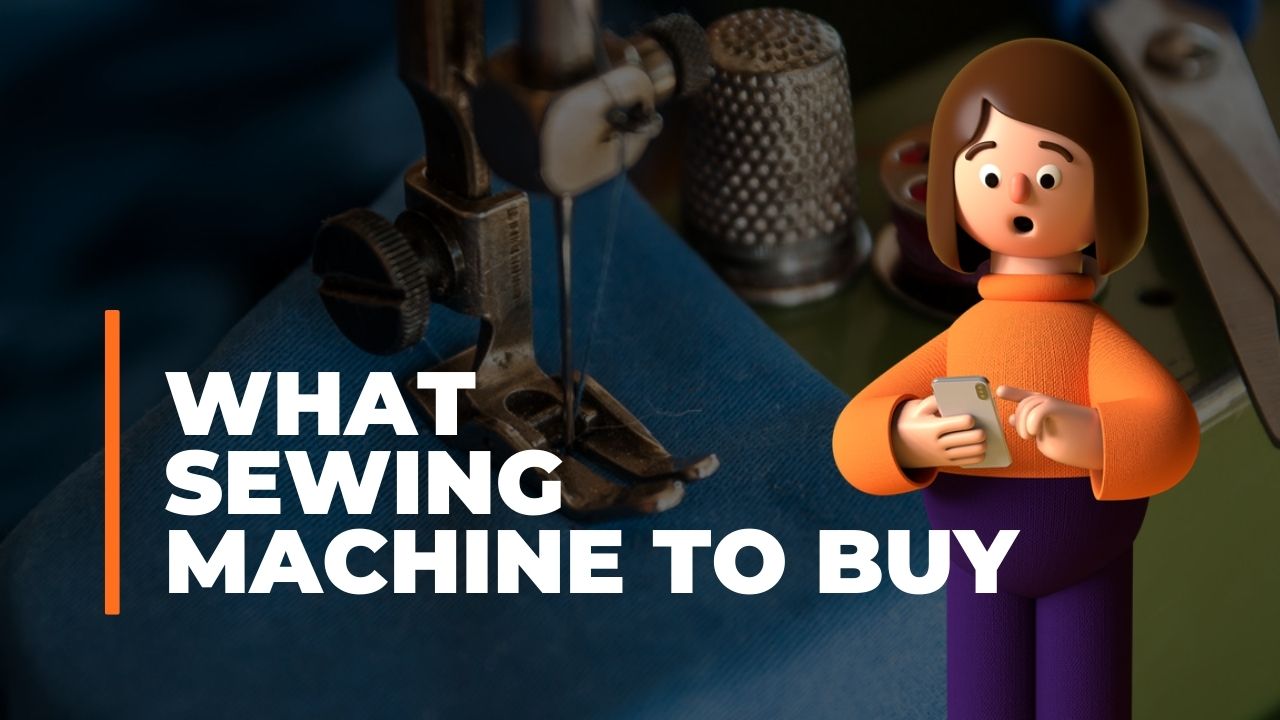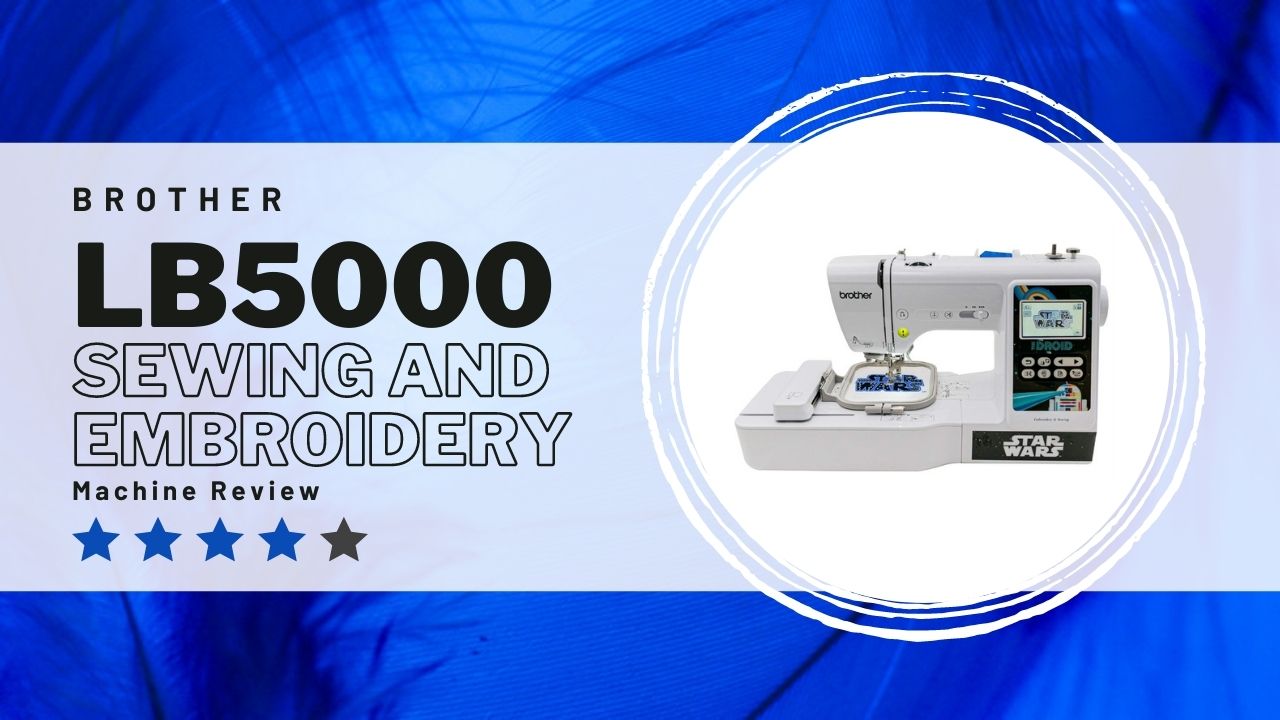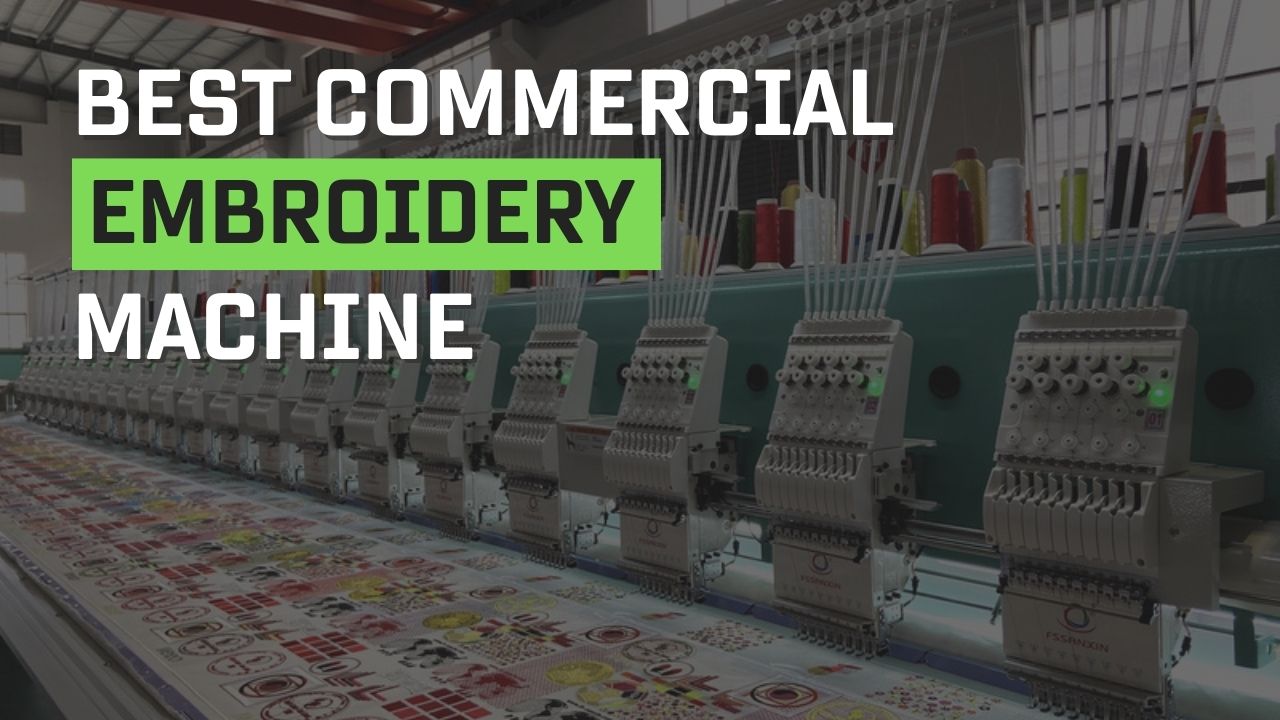Now and then, sewing machine brands will release a new one, maybe the latest version of their embroidery machines or an altogether new serger.
The question experts will ask is whether this one is good, and how does it compare with the others?
The question of what machine to buy is always the topic of every sewing machine buying guide, but being better than others must be the ultimate qualification.
Of course, everything will also depend on what you need, your skillset, and the price or the value you can get for your money.
Whatever the case, some are better than others and worthy of buying. And there are things that you need to know when buying a sewing machine.
It would help if you looked at those things to choose the better sewing machine for you to buy this year.
This sewing machine buying guide will help you choose the best sewing machine for you.
Read More: Want to know about the sewing machines of the future?
How To Choose The Right Sewing Machine
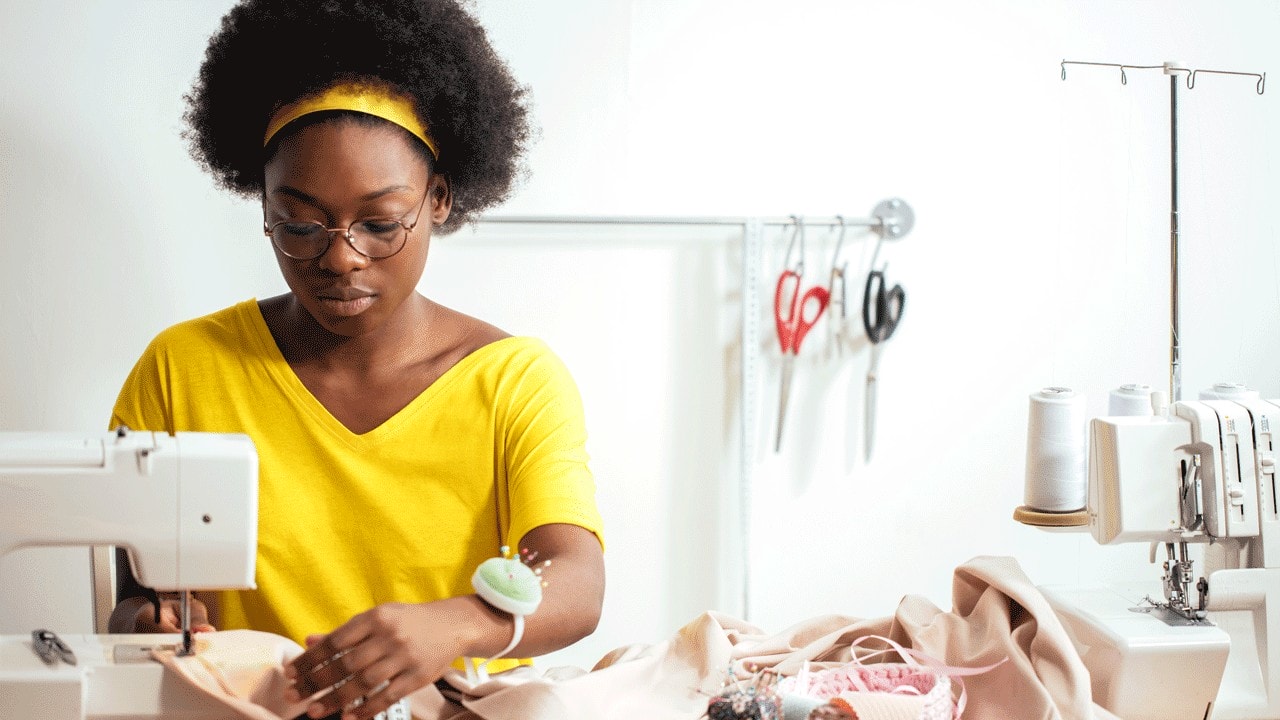
The best sewing machine is not always expensive or has the most features or accessories.
Quality, of course, has a lot to do with price, and the more expensive the machine, the more features and accessories it has.
But looking at those things is just engaging in the preliminaries, not the ultimate end of buying.
There are things that more than meets the eye, and more often, many customers get enticed by features and accessories; they forget to deal with essential aspects of the machine.
Here are some of the things you need to consider when choosing a sewing machine
Why Are You Buying A Sewing Machine?
It should be the primary question you need to answer, for everything else will follow once you have settled this one. For what purpose or reason are you buying a sewing machine?
Your answer to this question will determine everything in choosing a sewing machine.
Some people will buy a sewing machine because they want to have a hobby, do something in their spare time, or learn how to sew.
The sewing machine he will buy will differ from the one who wants to earn or start a home business doing sewing, embroidery, and the like.
If you are a hobbyist, the material and sewing project you will probably handle will differ from what the advanced sewists handle.
If you buy a sewing machine for a small business, you must bear in mind the sewing project and material you will be handling. Will you take on baby clothes, leather goods, and sports apparel?
There are specific sewing machines suited for those products; each has features, power, speed, and specifications.
For instance, you might need a sewing machine for leather goods, while those dealing with embroidery might prefer those with decorative stitches and embroidery designs.
You may need an industrial sewing machine if you take on many sewing projects.
Whatever the case, you need a sewing machine that can deal with specific projects you have in mind, whatever they may be.
Sewing Machine Type
Sewing machines have features depending on the type: computerized sewing machines have advanced technological features, like an LCD screen, but mechanical machines do not.
But mechanical sewing machines have more specific features and fewer options, making them easier to operate.
Depending on your purpose, you may benefit from some of the features that the two types of machines have.
Look At The Available Features
Sewing machines have different features which you may need or may help you. That will depend on what you want, your skillset, the fabrics the machine will take, and the nature of the sewing project.
Some, for instance, can do free-motion sewing and quilting, while others are ineffective. Others have a walking foot ideal for dealing with leather, while others do not have that feature.
Computerized sewing machines have many excellent features, ranging from LCD touchscreen to software that can enhance your sewing experience.
On the other hand, mechanical sewing machines have equally functional dials.
The critical thing to consider with the features is how well they work and contribute to the machine’s ease of sewing and operability.
Many sewing machines have lights and bulbs, but not all are as bright, resulting in greater visibility.
But it would be best to examine the features and see which are those that you need, can deal with your projects, and give you comfort in sewing.
But among the essential features, you need to look at the needle threader, thread cutter, bobbin system, speed control, and lights.
Some machines have automatic needle threaders and thread cutters; others do not.
Types of Stitches
Some machines provide you with many types of stitches; it is essential, however, that you have several stitches that will be very useful for your actions.
Depending on your work, you may need some, while others may not be that important.
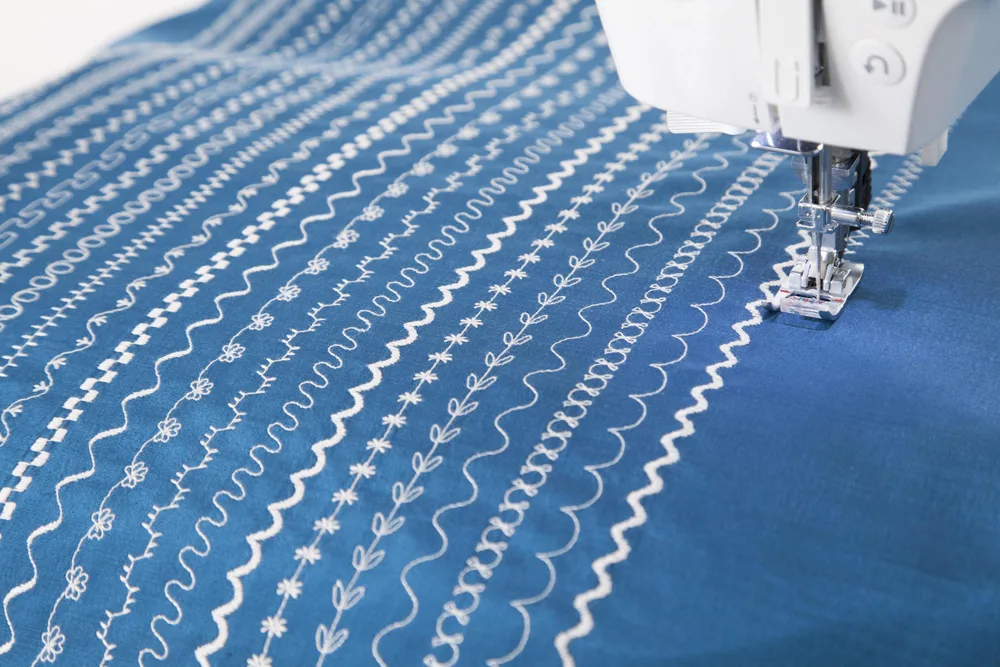
Straight stitch is available in all sewing machines, it is the most basic stitch, but if you are dealing with special projects, some may be more important.
Decorative stitches are essential if you are sewing for designs, while blind hem stitches are indispensable in dealing with skirts and pants.
Others, meanwhile, can do zigzag stitch and utility. Your sewing project might require several types of stitches, so you need to look for them.
Speed
Machines have different speeds, some are faster than others, and depending on the project, you may need a speedy one.
However, you might also need to use different speeds at times, so you may also need one that has a speed regulator.
Available Accessories
The sewing machine will come with many accessories; some are basic, like a screwdriver for assembling, needles, bobbins, etc.
Others, however, are essential and can give you many options for sewing.
A fine example would be the presser foot. All sewing machines come with a presser foot, but some have more presser feet than others.
Usually, they have a zipper foot and buttonhole foot, essential for garments, while others have a darning foot, which is very useful in free-motion quilting.
An extended table is also a helpful accessory, giving you a lot of work. If you are dealing with large sewing projects, you will benefit from having this one, but not all will need a large working area.
Accessories are vital and serve critical functions, but your needs will determine which are essential and which are not.
Quality Stitching
Sewing machines sew thread in the material, but not all have the same quality. Some have excellent, consistent stitching, while others do not.
Quality stitches will also depend on the “speciality” of the machine: some regular sewing machines can handle thick fabrics and materials, and some can do it faster.
Others can deal with thick fabric but are not suited for lightweight ones, while others can deal with all materials, whether light fabric or heavy ones.
Famous brands, as a rule, can give you quality stitches regardless of the type of machine, whether computerized or mechanical.
But even among them, there are differences; some are known for giving the best quality, while others can give you decent quality.
But as such, the proof of the eating here is the pudding, so you need to be diligent, do some research, and read some reviews to know which brands in the market today are best in quality stitches.
Power and Durability
Some machines are built for heavy-duty use and can take a lot of work. They are suited for all kinds of sewing projects and can deal with a ton of work consistently, day in and day out.
Many industrial sewing machines are like that; they have powerful motors and are usually of heavy metal or aluminium frames. They are very durable and long-lasting.
But many regular home sewing machines are light and portable; they need not be cumbersome to be durable, reliable, or heavy-duty.
But those with plastic parts and a lighter frame generally are less durable than those with metal ones.
If these things are important to you, you might consider looking at the build of the sewing machine, so you can decide if it is up to the task.
Weight Dimension
Some, especially industrial sewing machines, are heavy, and you need a lot of time and help to assemble them.
Some might need to be installed in a particular place and remain there, never to be transferred or moved, and a few also occupy vast space.
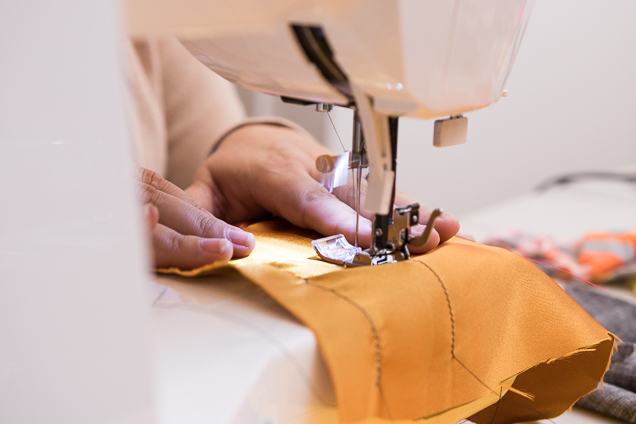
On the other hand, there are also portable ones, light but powerful, excellently performing, and durable.
Some can take a ton of work, while others can deal with many types of fabric and material.
You can move it anywhere or even bring it outside if you want; you can bring it to outings and summer camps.
Whether you can have one that is heavy or not will depend on how you use the machine in the first place.
An industrial model is for business, and some portable machines, though they can be for small-scale businesses, are primarily for home use and hobbyists.
Reputation
Some brands are famous for providing quality sewing machines of all types.
A Singer sewing machine is typical in most households because of its history of excellence; others, like Brother sewing machines, are known for simultaneously providing cutting-edge technology and comfort.
Some machines have made their mark in the industry, but it is still better to go with reliable companies than those unproven ones.
Price
Last but not least, you have to consider your budget.
Expensive and inexpensive sewing machines of all types and all brands abound, and things can be tricky if you are not diligent in assessing the sewing machine.
Some expensive machines are not worth it; other inexpensive ones are more than up to the task.
But even if the expensive one is worth it and you have the budget, does it mean you have to take the new machine?
Not exactly: you need to strike the proper balance between the price and everything else we discussed here.
That is not an easy undertaking, so choosing the best sewing machine can only be easy if you do your homework.
You need to know what you need and balance it with all the other factors that may affect your sewing.
Conclusion
It would be best if you meticulously choose what new machine to buy in 2022.
But it is worth it; you can have a wonderful sewing experience, an excellent sewing project, and excellent results if you have the best sewing machine.
It would be best to have the one at a very affordable price, but you can strike the right balance.
You look for what you need, have the features, and have a quality sewing machine at a reasonable and fair price.
This sewing machine buying guide provides tips for buying a home or any sewing machine you will need: bearing in mind those tips will go a long way.

